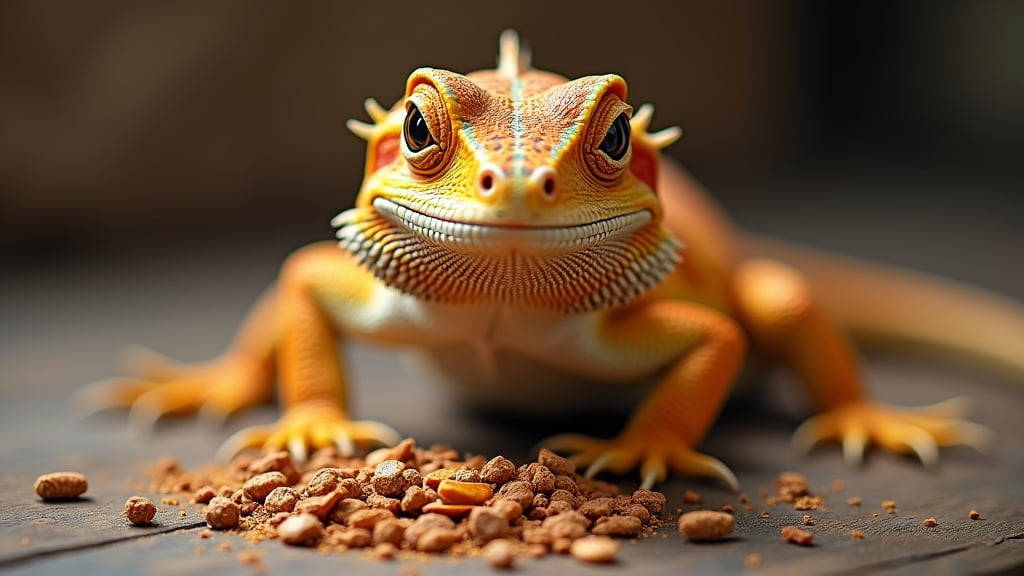The Ultimate Guide to Commercial Bearded Dragon Food
Bearded dragons are fascinating reptiles that have become incredibly popular pets. However, feeding them correctly can be perplexing for many owners. One question frequently asked is: “Which commercial bearded dragon food is best for my pet?” In this post, we’ll explore everything you need to know about commercial bearded dragon food, why it’s beneficial, and how to choose the right options for your scaly friend.
The Basics of Bearded Dragon Diet
Understanding Bearded Dragon Nutrition
A balanced diet is crucial for the health and well-being of your bearded dragon. In the wild, they consume a variety of insects, vegetables, and fruits. In captivity, it’s vital to replicate this diet as closely as possible to ensure they receive all the necessary nutrients.
Why Commercial Food?
Commercial bearded dragon food can be an excellent addition to their diet. It is formulated to meet their nutritional needs and offers convenience for busy pet owners. However, it should not be the sole source of nutrition. Combining commercial food with fresh vegetables and live insects will provide a balanced diet.
Key Nutritional Needs
- Protein: Essential for growth and energy.
- Calcium: Prevents metabolic bone disease.
- Vitamins: Particularly Vitamin D3, crucial for calcium absorption.
- Fibre: Aids in digestion.
Types of Commercial Bearded Dragon Food
Pellet Food
Pellet food is one of the most common types of commercial bearded dragon food. It is specially formulated to provide the necessary nutrients and is easy to store and serve.
Advantages of Pellet Food
- Nutrient-rich: Packed with essential vitamins and minerals.
- Convenient: Easy to measure and serve.
- Long Shelf Life: Less spoilage compared to fresh food.
Disadvantages of Pellet Food
- Less Natural: Does not replicate their natural diet.
- Acceptance: Some dragons may be reluctant to eat pellets.
Freeze-Dried Insects
Freeze-dried insects can be a good alternative to live food. They retain much of their nutritional value and are easier to store.
Pros of Freeze-Dried Insects
- Convenience: No need to keep live insects.
- Nutrition: High in protein and other nutrients.
- Variety: Available in different insect types.
Cons of Freeze-Dried Insects
- Hydration: Lack of moisture compared to live insects.
- Texture: Some dragons may prefer the movement of live insects.
Powdered Supplements
Powdered supplements can be sprinkled over fresh vegetables or live insects to ensure your bearded dragon receives all essential nutrients.
Benefits of Powdered Supplements
- Customisation: Easy to adjust the amount based on your pet’s needs.
- Versatility: Can be used with a variety of food types.
Drawbacks of Powdered Supplements
- Over-supplementation: Potential risk if not used correctly.
- Palatability: Some dragons may dislike the taste.
How to Choose the Best Commercial Food
Reading Labels
When choosing commercial food, it’s crucial to read the ingredient list and nutritional information. Look for high-quality protein sources and avoid products with too many fillers like corn or soy.
Important Nutrients to Look For
- Protein Content: Should be high-quality animal protein.
- Calcium to Phosphorus Ratio: Ideal ratio is 2:1.
- Vitamin D3: Essential for calcium absorption.
Brand Reputation
Selecting a reputable brand ensures that the food meets high standards of quality and safety. Research brands and read reviews from other bearded dragon owners.
Variety is Key
While commercial food can be convenient, it’s essential to provide a variety of foods to keep your dragon healthy and interested. Mix commercial food with fresh vegetables and live insects.
Trial and Error
Not all bearded dragons have the same preferences. You may need to try different products to find what your pet likes best.
Conclusion
Providing the right diet for your bearded dragon is crucial to their health and happiness. While commercial bearded dragon food offers convenience and ensures a balanced diet, it’s essential to complement it with fresh vegetables and live insects. Always consult your veterinarian for personalised dietary advice, particularly if you notice any changes in your pet’s eating habits or health.
For more tips on bearded dragon care, check out our comprehensive care guide.
Internal Links
External Links
Meta Description
Discover the best commercial food options for your bearded dragon. Learn how to choose the right products, understand nutritional needs, and ensure a balanced diet.
Remember, the best diet for your bearded dragon combines commercial food with fresh vegetables and live insects. Happy feeding!

